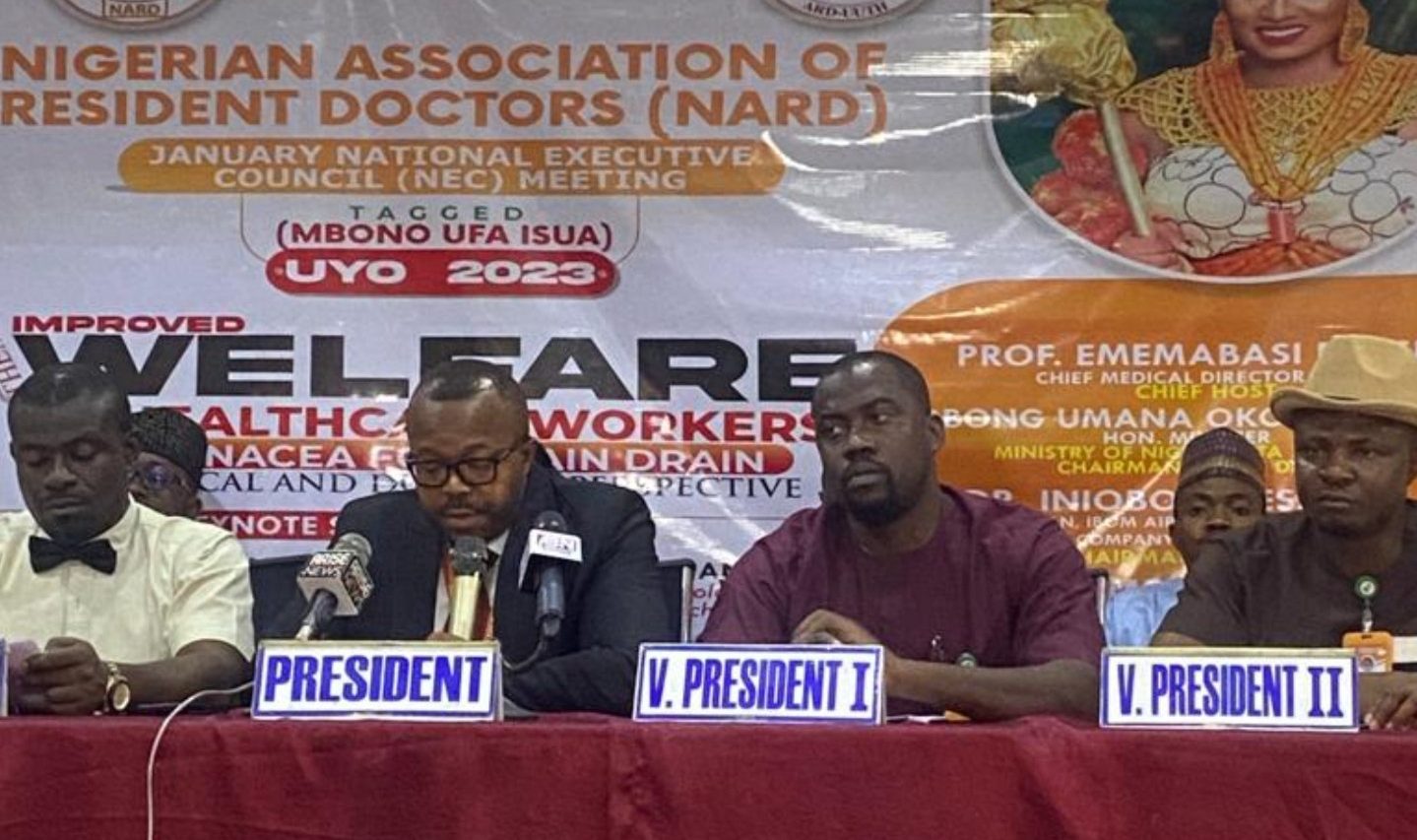Headlines
2800 resident doctors left Nigeria in just two years due to brain drain – NARD

2800 resident doctors left Nigeria in just two years due to brain drain, according to NARD.
Nigeria has lost roughly 2800 resident doctors in the last two years, according to Dr. Innocent Orji, national president of the Nigerian Association of Resident Doctors, or NARD.
He said that consultants and other physicians are not included in the figure.
At a press conference held on Saturday at the conclusion of a three-day National Executive Council (NEC) meeting in Uyo with the theme “Improved Welfare of Healthcare Workers: A Panacea for Brain Drain (Political and Doctors’ Perspectives),” the President revealed that according to a study the organisation carried out in September 2022, 800 resident doctors left the country from January to August.
He claimed that it was implied that 100 resident physicians leave Nigeria each month.
One doctor is expected to care for more than 10,000 patients without receiving a commensurate benefit package, according to Orji, who added that the departure of doctors to foreign nations has continued to burden Nigeria’s healthcare delivery and service.
The president lamented the terrible working and living conditions of health professionals in Nigeria and demanded proper pay and infrastructure improvements in hospitals nationwide to slow the rate of brain drain.
In accordance with the 2001 Abuja Declaration for healthcare financing in Africa and international best practises, he also called for a 15% yearly budgetary commitment for the healthcare sector.
The President encouraged the federal government to guarantee that the causes of doctors leaving the country are addressed while also calling for a study of the bureaucratic obstacles to the easy hiring of doctors.
READ ALSO: APC PCC: Buhari and CBN responded to Tinubu’s cries at the Abeokuta campaign rally
He claims, “We conducted research in September of last year, and we arrived at the conclusion that we lost 2000 resident doctors during a two-year period.” We lost 800 doctors between January 2022 and August 2022, or 100 each month. I frequently advise politicians to focus on governance as well as politics since they will eventually conclude the elections in February and March, only to return to discover that there are once again no doctors.
The reality is that there are still doctors looking for work on the street, despite the fact that there is a severe lack of medical professionals. However, the system’s bureaucracy is a significant issue. We are aware that government bureaucracy is required to follow due process and other rules, but it should be a point to assess current practises to determine whether they are effective. A procedure for replacing clinical professionals who are leaving the hospital must also exist.
“Even if you do that, the problem won’t be solved, but it will be lessened because the doctors who are leaving are highly skilled; even if you hire new people, it will take time for them to reach that level of training and competence.” The best course of action is to address the reasons why doctors are emigrating, says the expert.
“The need for housing programmes, vehicle loan programmes, and other things that even the government does not necessarily need to spend its money on is why doctors are leaving; instead, what it needs to do is facilitate the process and bring in private investors who would finance it.”
“Poor infrastructure is another factor contributing to doctors leaving their jobs.” Being a doctor who knows what to do to preserve a patient’s life but loses that patient due to a lack of resources is incredibly demoralising. If you experience depression over time, it’s not funny, and the next thing you need to do is leave and find a better system. There is no short way to deal with this issue, but the government can deal with it.
Orji added that the Chief Medical Directors of Tertiary Hospitals should be responsible for security in their various hospitals, as NARD would no longer stand by and watch her members being assaulted by staff, patients’ relatives, or security personnel. The NEC also stated in their resolution that the National Assembly should pass laws protecting healthcare workers.
He continued by calling on the federal government, the Nigerian Governors’ Forum, and all interested parties to pressure the governors of Abia, Ondo, and Ekiti to pay the salaries and allowances owed to their constituents that have accumulated in arrears; he claimed that Abia State’s arrears had reached 25 months.
